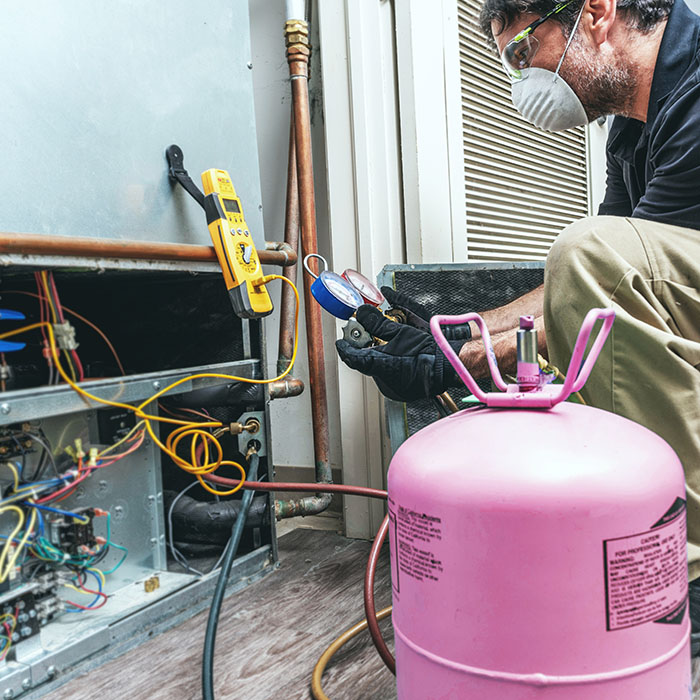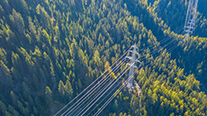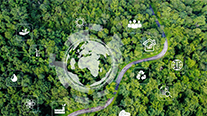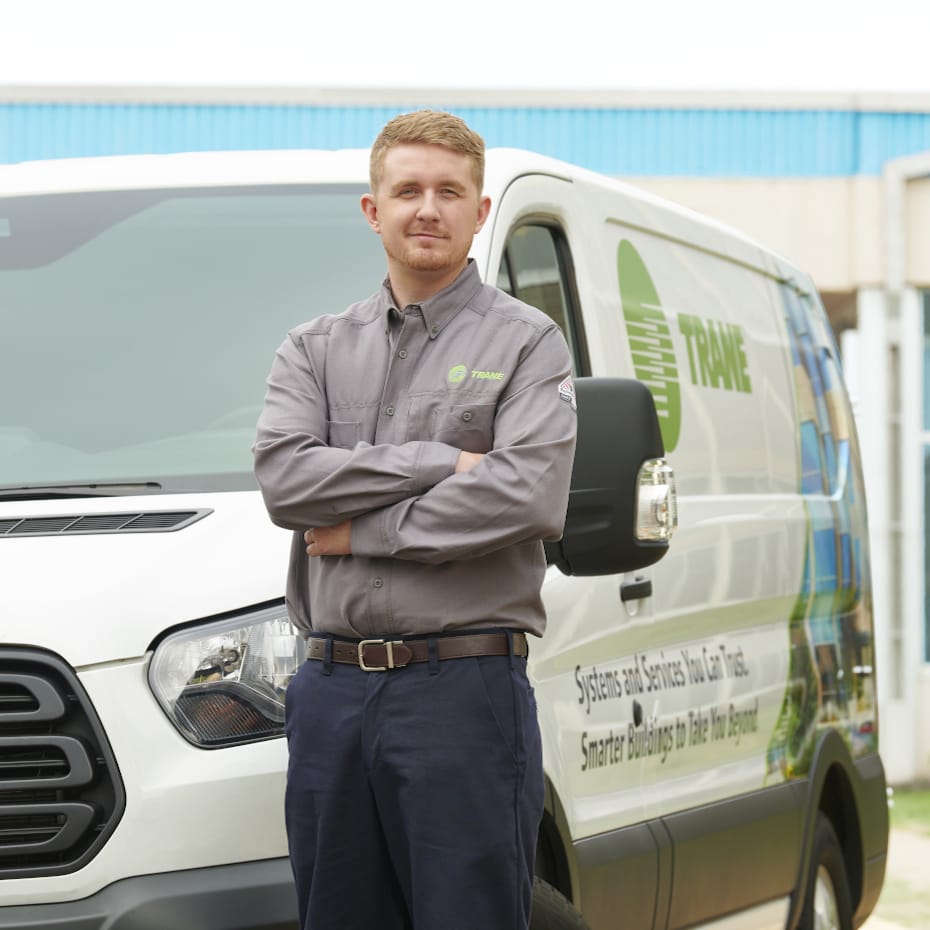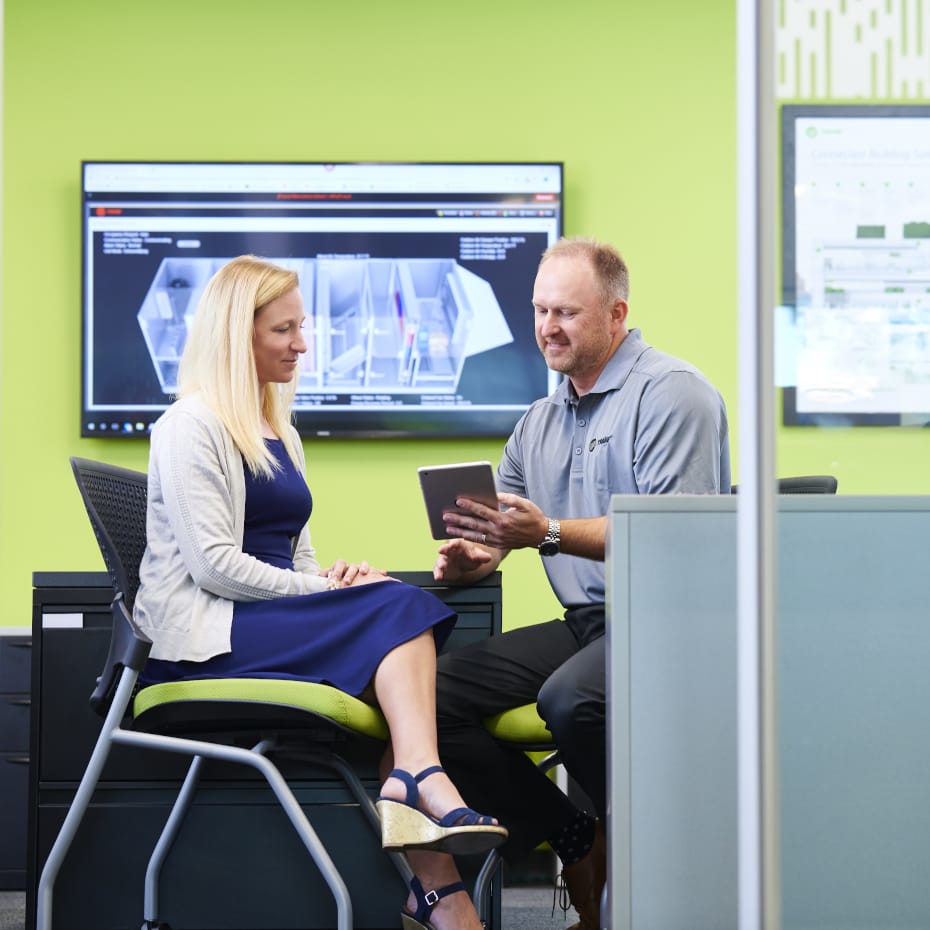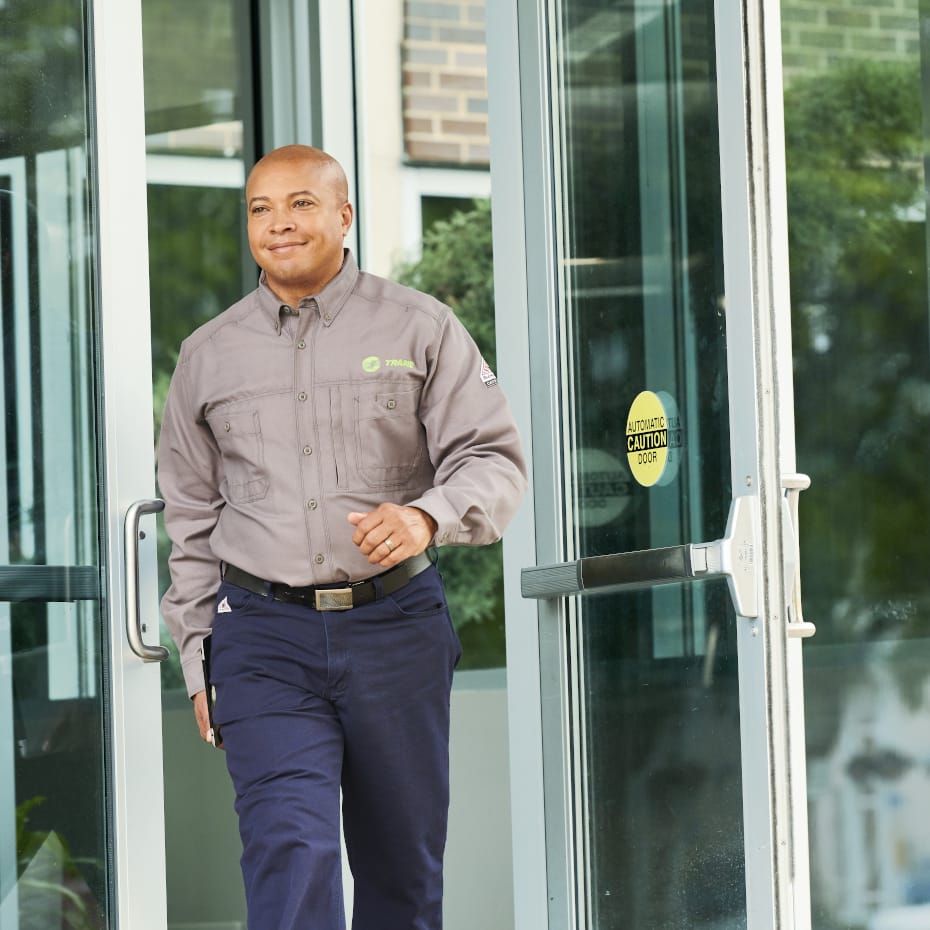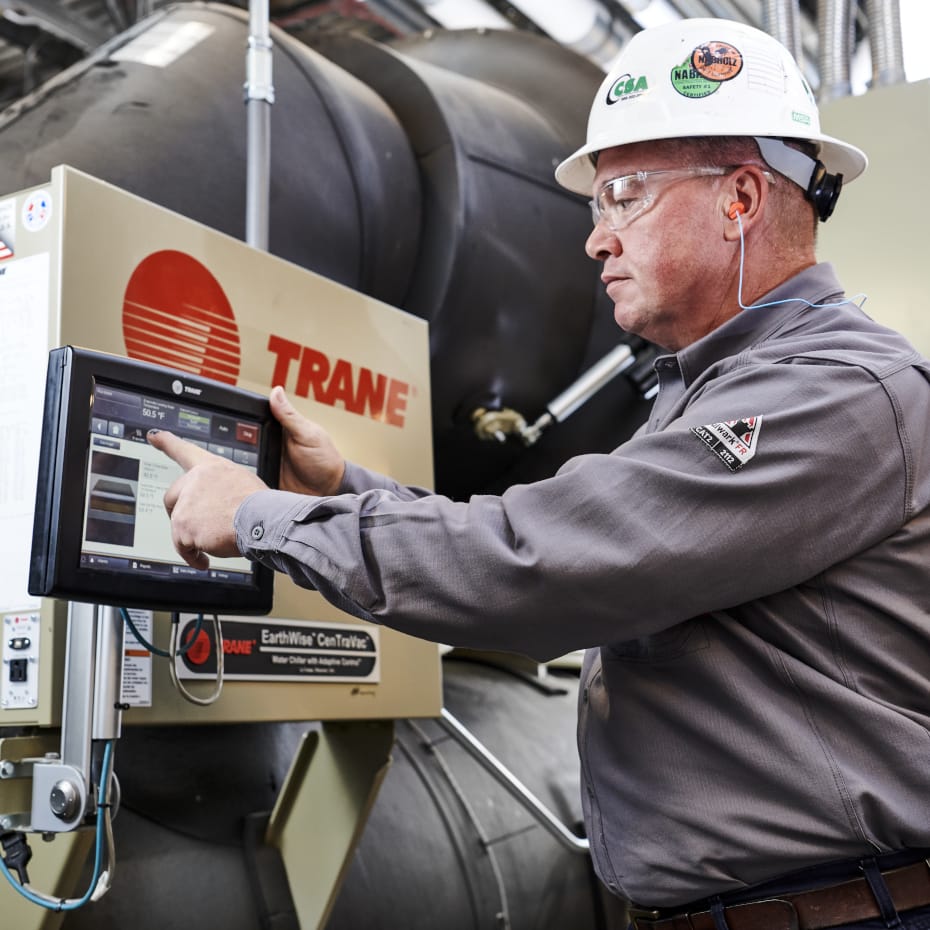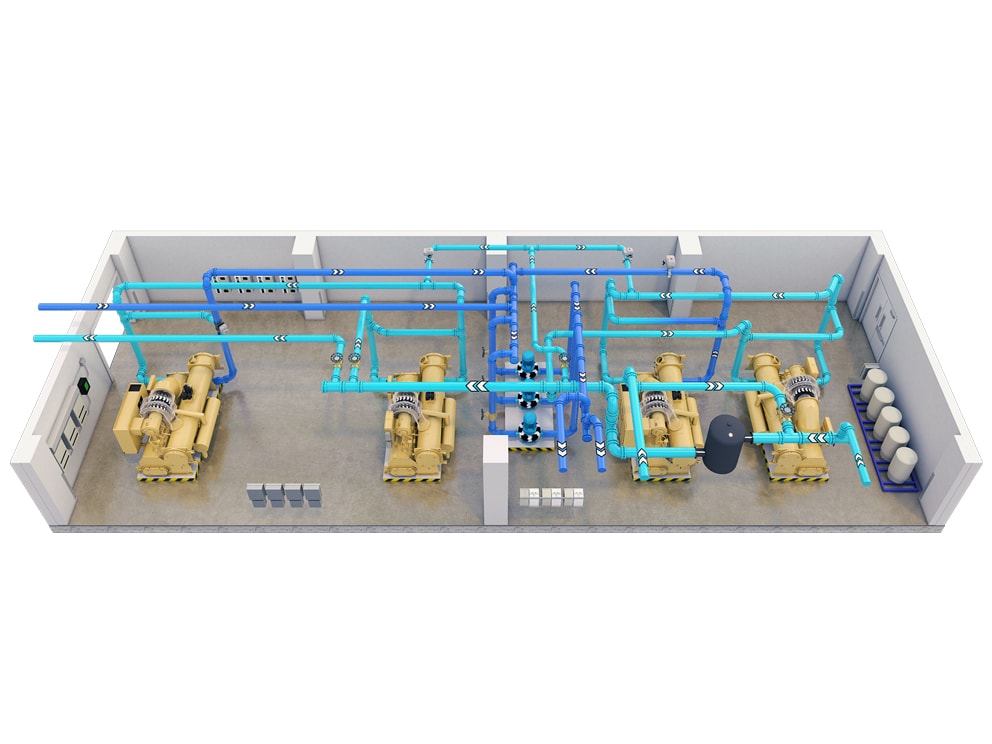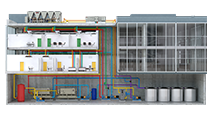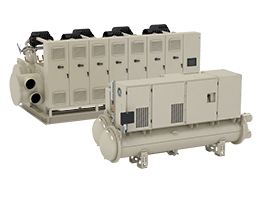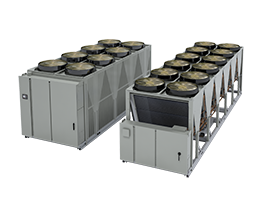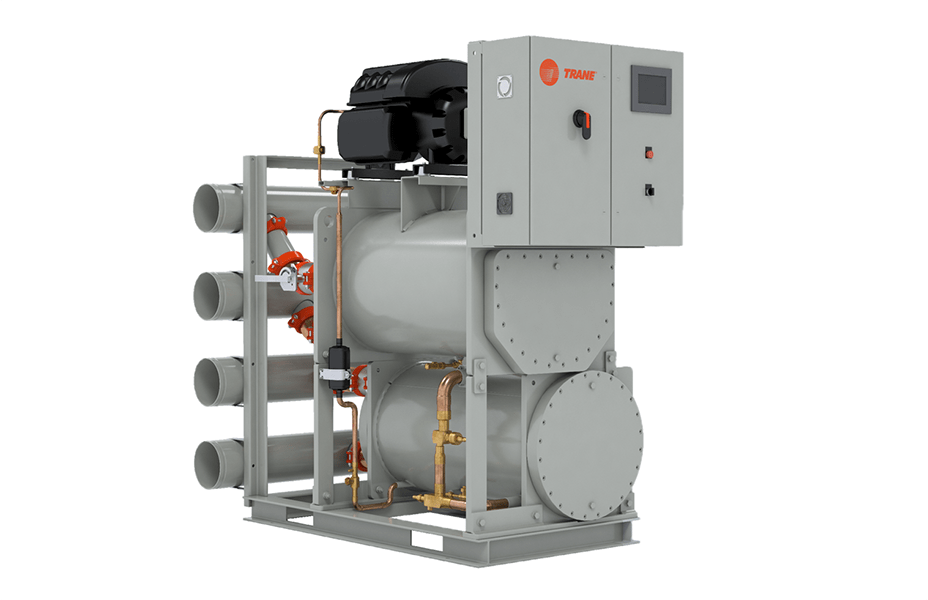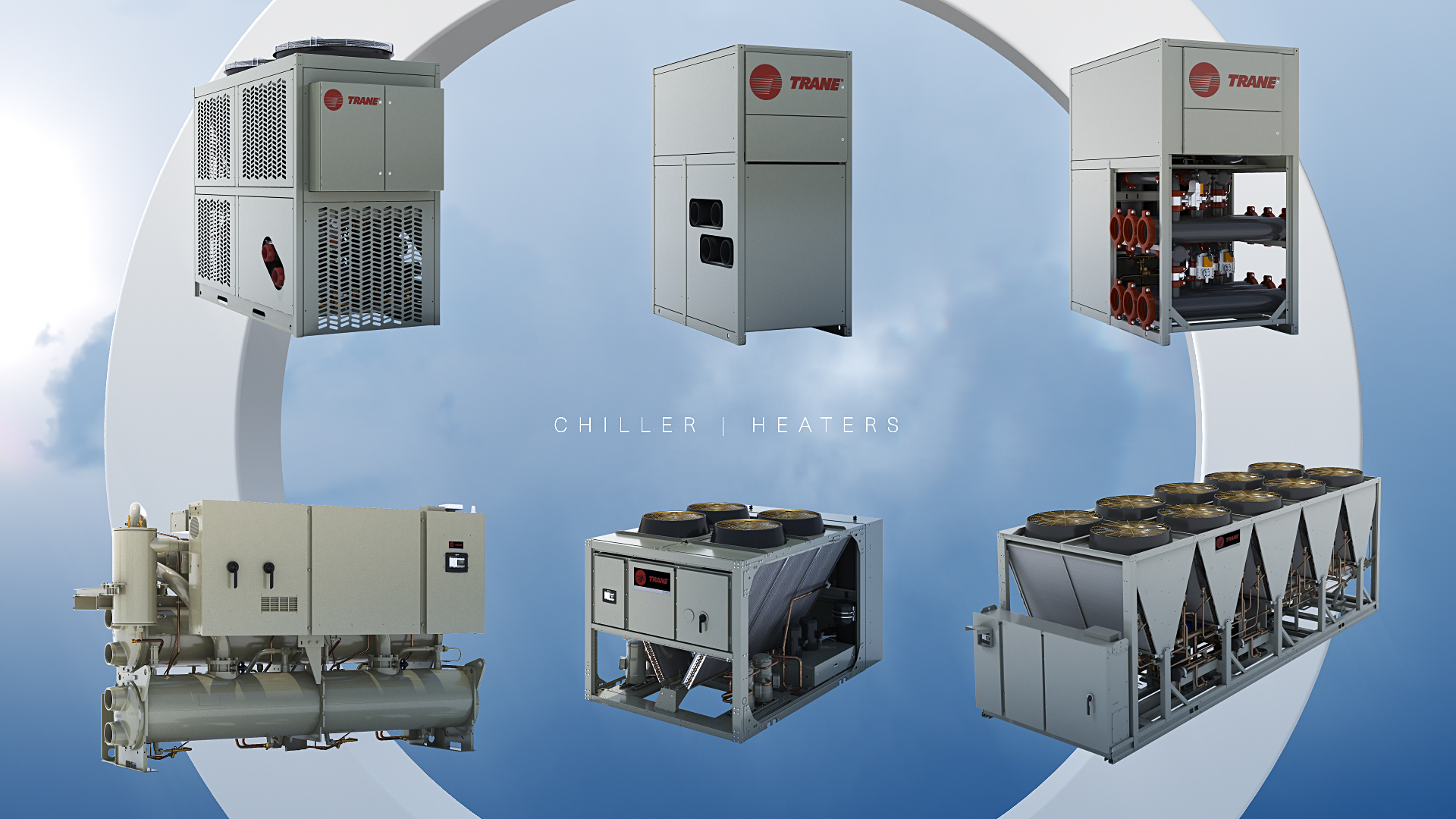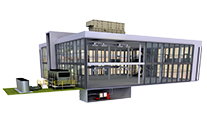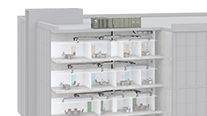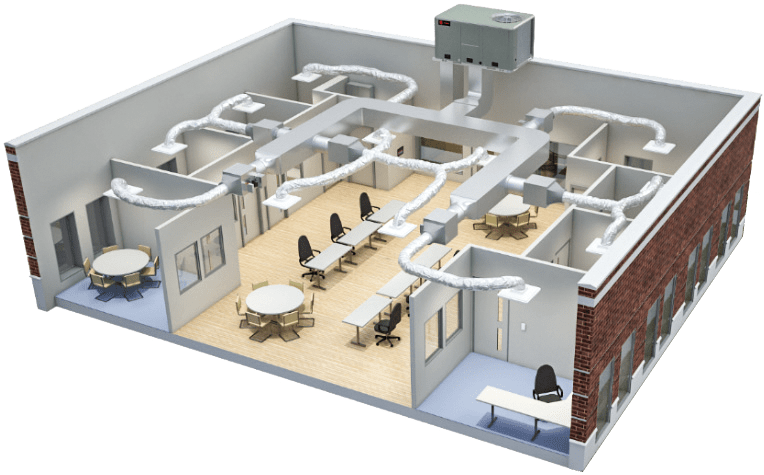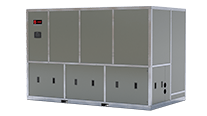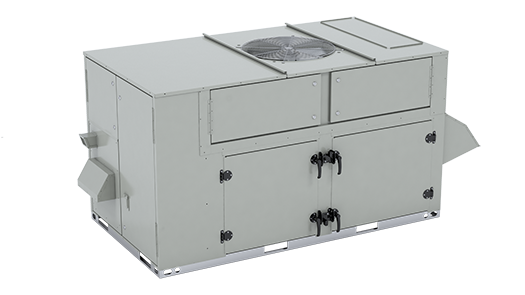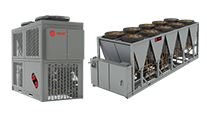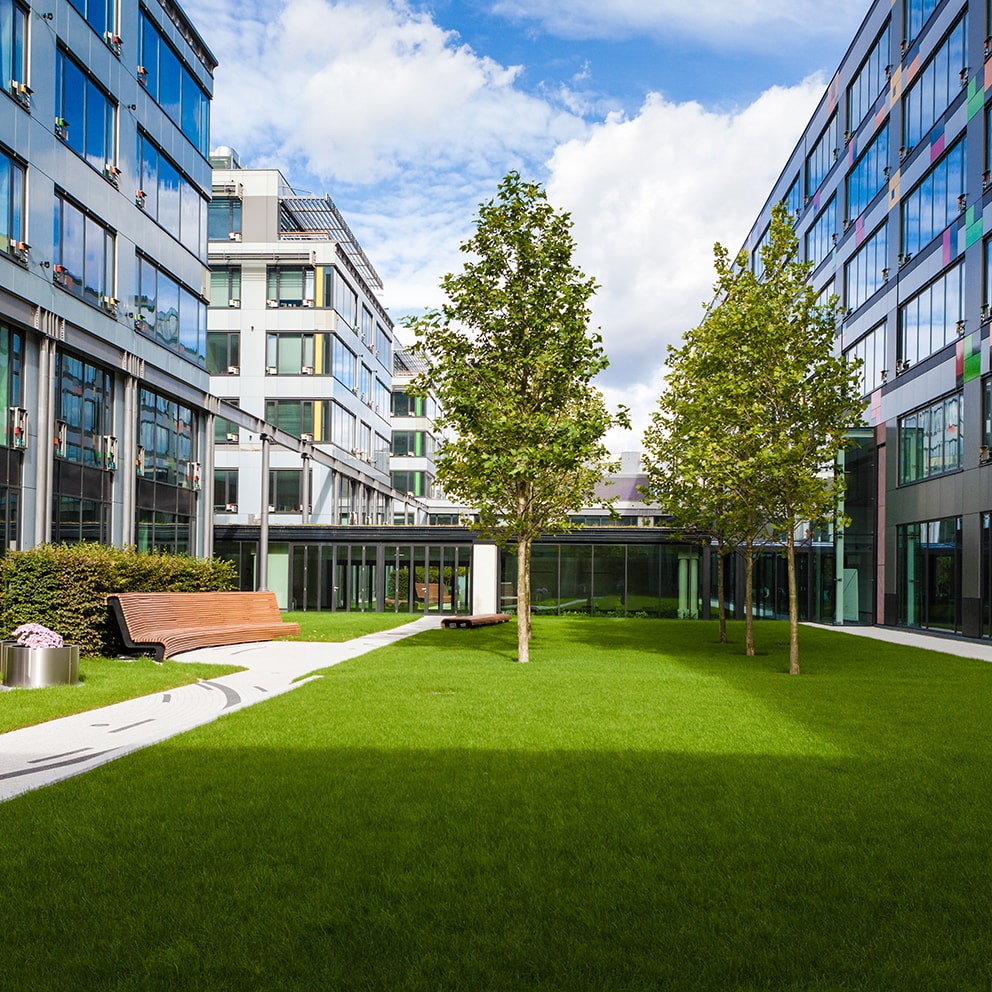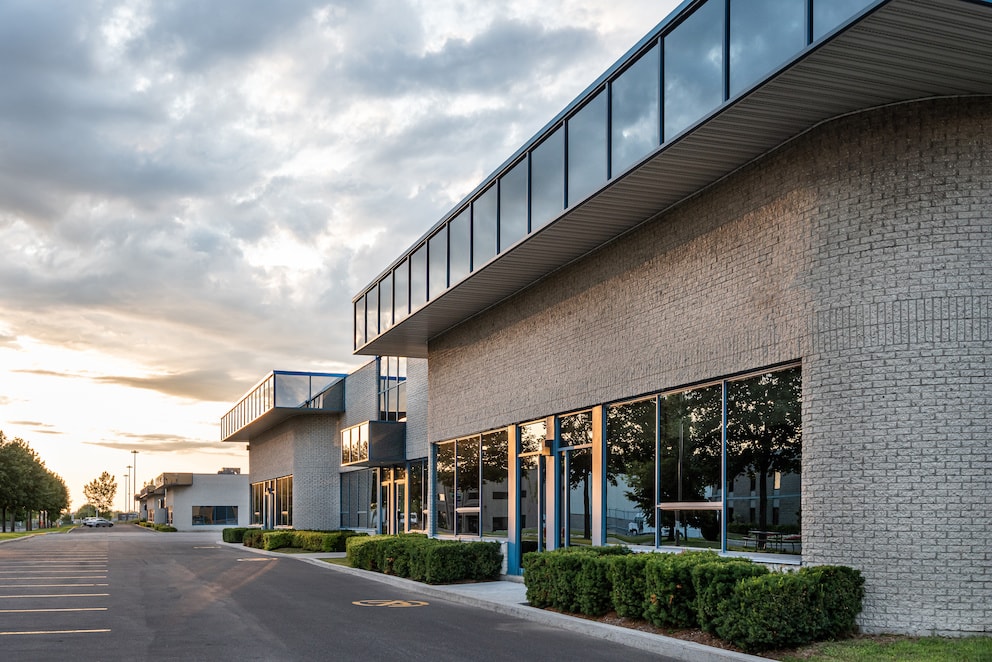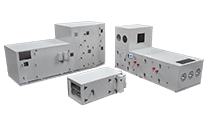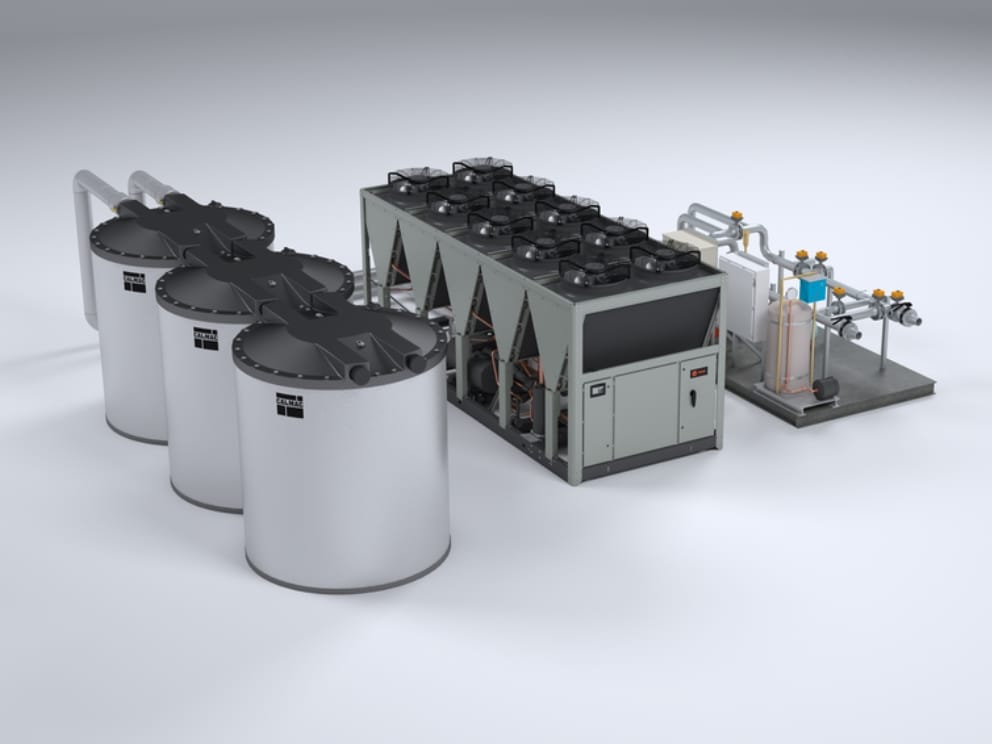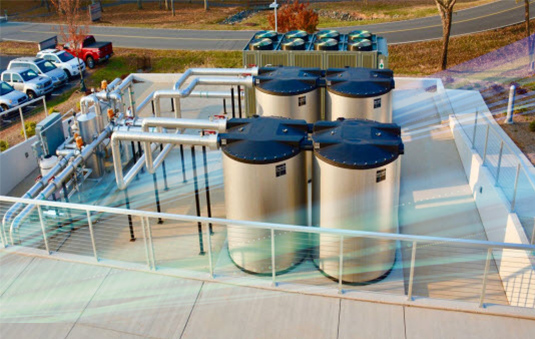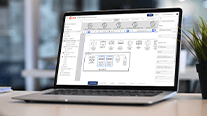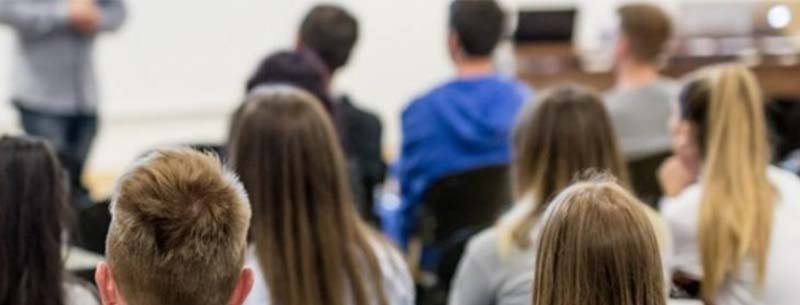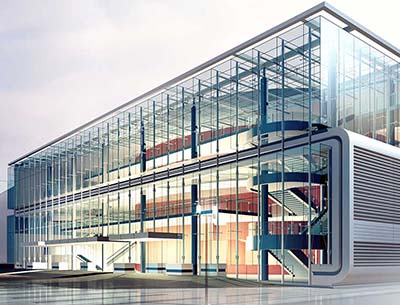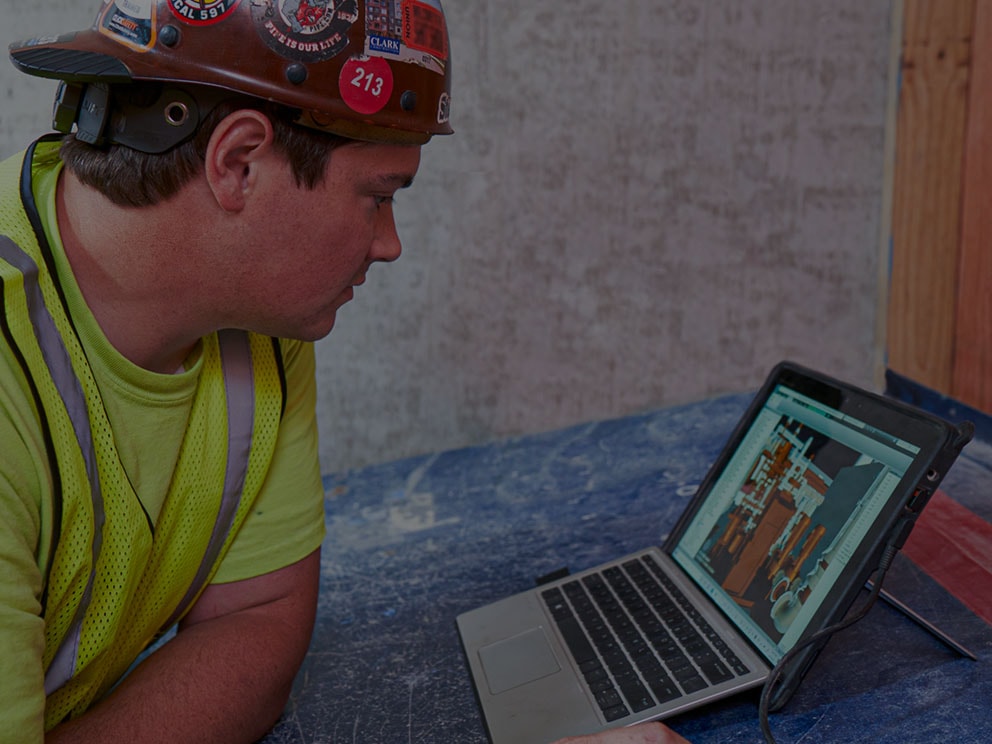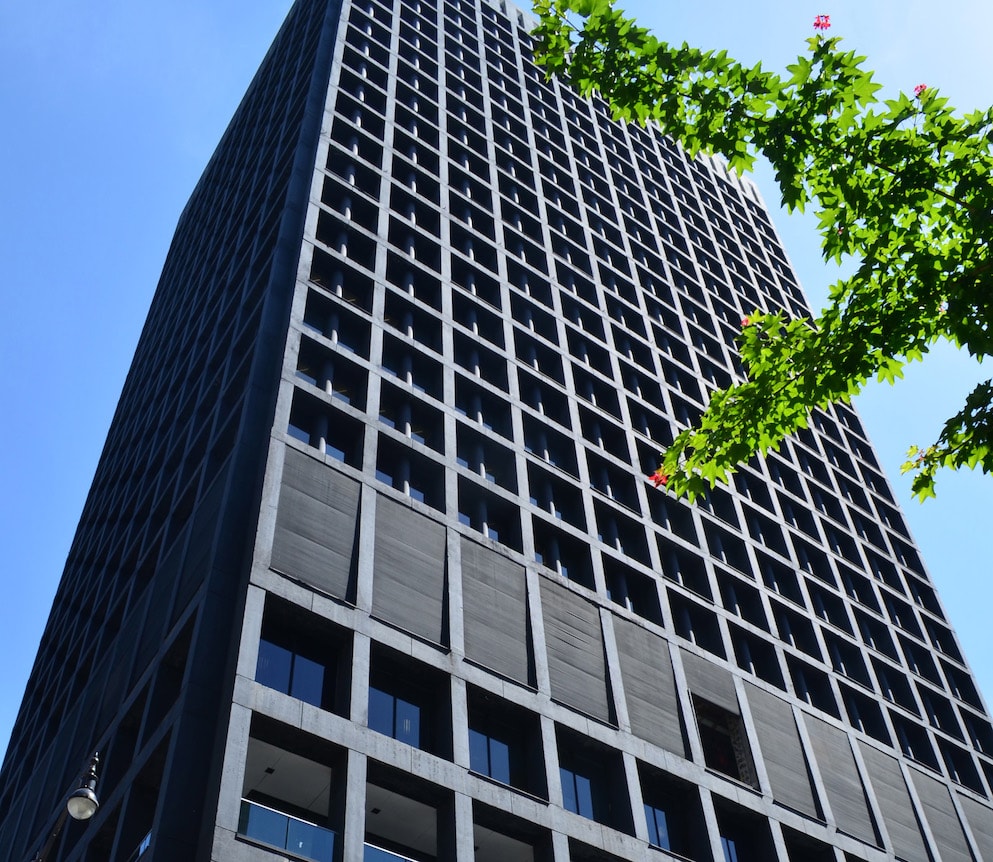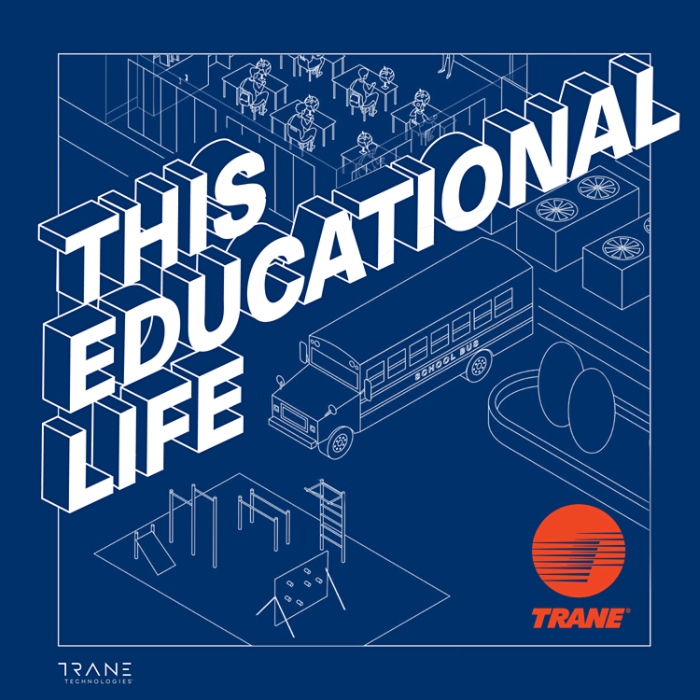John Glasgow: Growing up in rural town that I did, I was told, you know, there's nothing here for you. Town's dying. If you want to be successful, leave at all costs and never come back.
David Ardrey: Our schools are extremely vital and important to rural communities. I will tell you, drive Illinois two lane roads in any community, and you'll find an abandoned or unused school building, and you'll find a community that's in decline decay or may not even be there anymore.
Mariah Presley: That's John Glasgow and Dave Ardrey from the Association of Illinois Rural and Small Schools, and my guest today. For decades, the story of rural America has been one of closing schools, shrinking job markets, and young people leaving in search of better opportunities. But what if education could be the key to changing that?
Welcome to this Educational Life, a podcast by Trane. I'm Mariah Presley, Education and Industry Programs leader for Trane. And on this show we explore the challenges and solutions shaping the future of education. Today we're exploring what it means to grow up in a rural town and how educational leaders are ensuring students don't need to move to the big city to succeed post-secondary.
For Dave and John, this is a topic that's close to home.
David Ardrey: I grew up in a small rural community. Uh, when I moved for my professional life, I remained in a small rural community. I've thought about what it would be like to live in a large community. Uh, I've only blinked my eye about once on that thought and stayed right where I am.
Mariah Presley: That's Dave, by the way.
Formally the Director of the Association of Illinois Rural and Small Schools. He's now steering the ship nationally in his role as the Interim Executive Director for the National Rural Education Association. And here's John, the Program Director for the Association of Illinois Rural and Small Schools.
He's also a small town guy from West Illinois.
John Glasgow: You don't really think of rural as a concept, as an identity, uh, but then when you go out into the world and you have the chance to leave the town you're from, it becomes very present that your experience and your identity is just a little bit different than some of our urban and suburban peers.
Mariah Presley: To understand the challenges rural communities face, we first need to recognize their importance. In an increasingly noisy world where often the biggest voices are heard, it's easy to overlook the fact that there are more than 9 million students who attend rural schools. A number that is larger than the combined enrollment of the nation's.
85 largest school districts and a large portion of the US population still lives in rural areas, but these communities remain vital to the nation's economy, culture, and future.
John Glasgow: We think of middle America or really insert rural area anywhere as sort of flyover country, right? That like it's the hinterland that exists for extraction of something to support the urban core somewhere.
But really when you dig into the history of, you know, Illinois and the Midwest in particular. We really are at the crossroads of globalism in a sense, right? Like the global world as we know it now had its roots in the settlers and farmers that came to the Midwest and set up these global agricultural markets that then channeled into industrialization here, there, and everywhere.
And so it's important that we at least understand what rural is and what communities have going on in terms of challenges and opportunities for that exact reason, right? We're still part of that global system. And yet as history has gone on, we've both felt we've been cut out of that system and the system hasn't recognized that we're still that fertile ground from which everything else stems.
Right. So for me, I think that's some of the importance there.
Mariah Presley: My grandmother would say it's the legs that we stand on. Right.
John Glasgow: There you
David Ardrey: go.
Mariah Presley: It's definitely an important part of the entire person's. What about you, Dave? Anything you would add to that?
David Ardrey: I would actually go back to the beginning of this country.
If you think about every community that has grown into a large urban city. It didn't just happen on a day, on a magical moment, those areas, part of the westward expansion started on the east coast, worked its way west, got to St. Louis, came to Chicago, began to set up these areas of not even considered urban trade yet, but as they developed and evolved and continued to grow.
And so the history of our country is deeply rooted in the rural place.
Mariah Presley: For generations. Rural and small towns have been the backbone of America. Places where critical innovation industries like manufacturing and agriculture have laid the foundation for the country. We know today these communities built railroads, fueled competitiveness, and fed the nation, and at the center of it all the local school.
David Ardrey: If you think about education, you can't think about education in this country without thinking about rural space. Because of this reason, I. In the late 17 hundreds, the land ordinance written by Thomas Jefferson was enacted. The land ordinance set aside the 16th section of every township to do what?
To build a school. So every school that started in this country started on the 16th section of every township as a rural school.
John Glasgow: The foundation, I think all along has been our educational system. Right? And in general, education's a foundation just about everything. And I think it's even more clear in our rural communities.
It's one of those, you know, final, remaining institutions. But you have this great opportunity to see how, not just democratic society, but the economy as we understand it, culture, you know, even preservation of our ecology, all are rooted around what's the school doing to prepare students for success to offer jobs to the community.
Mariah Presley: Schools in rural towns have always been more than just places of learning. They're gathering spaces, sources of pride, and often the heart of the community. But today, these communities are facing new challenges.
David Ardrey: I think the changes that rural communities have seen, say over the last 20 years have really relegated them to rely on their rural schools.
They rely on them to serve as a hub of their community. They've lost some of their wraparound services, and so the school has become that hub of wraparound support and service. We didn't think much about that until the pandemic hit in 2020, and when we sent everyone home from schools, we realized, oh my gosh, we just took away all of these services for children, for families, for communities, for parents, for teachers.
Unintentional, obviously. But the reality of the unintentional consequence was our schools are extremely vital and important to rural communities. And I will tell you, drive Illinois two lane roads in any community you wanna look at. You'll find an abandoned or unused school building and you'll find a community that's in decline decay or may not even be there anymore.
Mariah Presley: It's so interesting to me because I sit in a role where my whole world is about how do we explore what's possible between workforce and bridging gaps that are very real and how does that intersect with education? And I look at our workforce and we have a significant amount of, of people that come into train or companies like Trane that are coming from these rural communities are coming from.
School districts that maybe have more of an acclimation to uplift some of those more like skilled trades or those CTE type programs. But a lot of times I ask myself, what's the challenge? Like, what is stopping us from really investing in education in these small communities, especially when there's such a need on the workforce side.
So any kind of thoughts or reflection you guys have on that.
David Ardrey: I'm gonna start off with a quote that I heard recently that Mark Twain said years ago, and he said, don't let school or schooling interfere with your education. And I think that we've allowed our school to interfere with children's education.
There's so much to learn and there's so much to understand. And so I think we've lost a little bit of our way, if you will. We see things in this educational system we think are so important and so valuable that it pushes some of the most important concepts out of the education system. How do you learn to work?
How do you learn to understand the workforce? What does it mean to be in the workforce? And that's across the board. I think oftentimes people think of. Workforce education is more along skilled trades and skilled type work that's with my hands or my feet. Where every workforce, whether it be with your mind, your hands, your feet, your entire body, I.
They all have certain commonalities that you have to have to be able to work in that space. So I think the challenge right now is education finding. Its way back to the idea that teaching kids about the workforce and how to engage in the workforce is as important as the content they receive for the interest of their profession.
We gotta get industry back in our rural communities to understand there's some really valuable opportunities there for them. They've migrated out like everyone else has. We need 'em back. We need those partners back in those rural spaces to help us.
Mariah Presley: And in my experience, I think there's almost like this perception that to work for a global workforce, we need to leave that community, right?
There's this strong perception that to be successful means to fly the nest and and go to that next big thing. So do you guys see anything that needs to change for students to sort of redefine what that success looks like or reapproach that narrative?
John Glasgow: I mean, that's sort of my story, right? Growing up in rural town that I did, that was entirely what I was told.
There's nothing here for you. Town's dying if you want to be successful, leave at all costs and never come back. And I, like many, many, many rural kids did do that. I left, I went to a large urban area for college. I even went out of the country for my graduate degree. So for me, doing that process and recognizing that like, well wait, actually what gives me purpose is giving back.
And for me, giving back means on my context where I'm from. I think a lot of it does start with that narrative. What are we telling kids they can do? Right? What are we telling them about where they're from and what they're seeing? Right? Yeah. We've lost a lot in rural communities, but we are still pretty rich in a number of assets, and so if we're not using those right here and now as the implements for education, like Dave said, mm-hmm.
David Ardrey: Then
John Glasgow: we're missing out an opportunity to really expand students' horizons for what is possible here, and then extend it out everywhere.
David Ardrey: I think about an illustration of the homing pigeons. They have a place where they call home, but they wander out and they go and they deliver and they're engaged, but they come home.
And I think the sooner we are able to change the narrative that coming home is not a bad thing, that coming home can be a productive thing. And in our workforce today. I think leaving home for a bit to see what else is out there and then coming home and sharing what you've learned is the real benefit to a rural community.
And you see this a lot, especially in agriculture. You see kids go away to college and they think they're gonna go out to the big horizon and work for John Deere globally or work for a seed company internationally. At the end of the day, they come home and they come back to that family farm, or they come back to a corporate farm that they prefer to own someday.
Like, I'm gonna work for the corporation, but I'm gonna own that farm someday because I have the next level technology. I have the next scale of education. So I think that's the narrative that it's home is still a great place to contribute your information to, and it's okay to explore and see what's out there.
But then still consider home as a place to come back to.
John Glasgow: Right. And I have early on in this type of work of rural education, advocacy, you know, face questions of we are just trying to lock kids at home and never get out and leave. Right? Well, that's not really the case on two different levels here.
There's so much that a student can do before they even graduate high school to contribute to where they're from and explore and become more of themself. And second for what Dave's saying, you know, I think all this work is, yes, it's about lifting up rural schools and communities in and of themselves, but it's also.
Putting them, I think, on equal footing to be an equally worthwhile, fulfilling career and life choice. Whether or not you leave and come back, or if you're not even from this area and you come here like it, it shouldn't have to feel like a sacrifice in whatever way that you think of the word.
Mariah Presley: The future of rural communities isn't just about whether people stay or leave. It's about making sure they have real choices. At Trane, we talk a lot about redefining what's possible, and part of that is also redefining what success can look like. For far too long, the path to real opportunity has been tied to leaving for a big city, but there's dignity and purpose and careers that keep communities thriving.
Whether HVAC construction or advanced manufacturing, when students understand how their interests in education can connect to those pathways and have a real impact, entire communities benefit.
John Glasgow: So one of the projects that Dave and I have a great honor of working on is something we call the rural Illinois Career and Technical Education Project.
We're doing it hand in hand in partnership with the Illinois State Board of Education. Their CT department recognized that, hey. There's unique challenges and context that rural schools are facing when trying to offer all these life-changing career exploration and learning opportunities that they've talked about.
Well, what are they, right? And so they reached out to us as would you like to be our partners in understanding what those challenges are, and then what can we do to help address them? So over the past year, we were able to engage 237 of, at the time, 468 rural districts here in Illinois. So we have about a 50% response to how rural schools are doing, and from our experience here in Illinois, that's pretty representative of what we've heard.
And so to the question of, you know, what can we really start doing here? I think part of it is looking at the numbers in a couple different ways, right? One is. What do we have? Because there's, we always have assets at hand, right? One of those assets that nearly every rural district with career programming has is agriculture.
And in Illinois anyway, agricultural education is blessed with a certain amount of flexibility to expose students to a whole array of different careers that intersect with agriculture. Right? So I think some of this conversation is where can all manner of industry partners and schools and students creatively come together, perhaps through that avenue to expand opportunities here?
I think the second part is looking at where deficiencies are at, right? Where Laxs are. So we didn't just ask schools, what do you have? It's, what don't you got to right where, where are you struggling? And across the board to nobody's surprise, massive educator shortage in rural communities, especially for career and technical education.
Hand in hand with that is a lack of facilities, equipment, and resources. So I go into detail to explain those three points because as much as that is an issue, it's a challenge. I think that's an opportunity for really some of this workforce and education collaboration, right? Because who does have staff, who does have facilities that you know, needs staff to do particular jobs?
It's industry, right? Like they already have the specific skills and equipment they need people to work on. So what more natural of an opportunity to find some way. To let work be the educator. Right? To have that bridge there for students to cut their teeth, doing the work, hands on and learn while they do it right, all while getting credit to graduate high school.
I.
David Ardrey: Yeah, I think John really highlighted some specifics and some work that we've been, you know, looking at and reviewing and studying and researching. I think both before that and now post that research. For me, it still comes back to one thing where I think the greatest challenge about opportunity exists is in what we consider our strongest asset, and that is public schools.
They've been around for 200 years, but they're also steeped in history a little. Too much in that it's hard to change. It's hard to open their minds or the system to the idea that maybe we have to be a little more flexible with our school day. Maybe we need to be a little more flexible with our credit hours.
Maybe we need to be a little more flexible with the relationship between our career pathway and our basic graduation education. Career tech has been the interference over the last decade. And so I think it's the notion that public schools have to open their minds to what industry already knows.
Industry has had to change dramatically in the last 10 years. Technology has changed the way industry operates, and if you didn't change, you wouldn't still be here. Someone would've consumed you because they had a better understanding. So when education and industry can find some common ground on some of these ideas, and when.
Education can shift enough to create flexibilities. I think that's when you'll see these opportunities just explode.
Mariah Presley: Simon Sinek has a, a nice little bit about like purpose driven collaboration and he uses the analogy of a car, right? Going to Alaska. And so if we all know, like train might be in a different car and we probably have a different fuel source, right?
And public education, same thing. But if we all know we're going to Alaska, like. That's the ultimate vision and we can all drive in that direction together. And I think you've done a really good job of emulating that, not just on the board, but in the research and really how we're now getting a little more practical with being innovative and, and going to some of those schools in Illinois and saying, Hey, here's what we've learned.
What can we do about it? So that is actually a big piece of this podcast is like, how do we really shine some light on what we're calling resourceful innovation? Like this idea of that we can innovate with the resources and the things that are already in play. So can you talk about a little bit, how is this kind of idea, resourceful, innovation shown up so far in the work that you're doing, John?
John Glasgow: I think one kind of goes back to what are the best ways that we could utilize the fact that agricultural education is ever present in most rural schools. Right. But I think going way back to the roots of when we first started partnering together with some of this work, it's this concept that I've held for a while that like even if you are a self-described country school in the cornfield middle of quote unquote, nowhere, though I'd say's middle of everywhere.
Right. You still have one of the most important assets that you could ever have, and that is the school itself, right? I think in career tech, as we trap our minds that, well, if I don't have the machine lab and if I don't have, you know, the ag class, then I don't, I can't have a CT program and it's like not at all.
There's so many different industries and career fields that have to come together to make a school function. There's almost an endless amount of creative ways that we could have kids be doing hands-on work-based learning, and I think that's something you all at Trane do really well is what can we do what this school building itself to expose students to this whole world of data science and energy, and it isn't just hvac, right?
There's so much more to it as well.
David Ardrey: I think back to a, a young woman who was in our church, got a degree in ag and I often wondered what is she gonna do with her degree in ag? She didn't grow up on a farm, she grew up around people who farmed. She didn't put her hands in the dirt every day like farmers do.
And I thought, well, you know, what's she gonna do with it? One of her first jobs was mapping out the field from a technology standpoint. So a drone or an aircraft could plant the seeds from an aircraft.
Mariah Presley: Cool.
David Ardrey: And, and I'm thinking to myself, wait, don't you plant seeds from a planter behind a tractor after it's been plowed?
And her technology based kind of mindset with an ag kind of flavor attached to it, gave her an opportunity to be engaged in that. And now. These days, especially in Illinois, I see this all the time, used to see a lot of the old school airplanes doing a lot of that work. Now you see these massive drones flying the fields, and they're not just doing fertilizer, they're not just doing seed.
They're not just doing specifics to the plant. They're mapping, they're evaluating the crop. They're used for security purposes, how to protect my field from predators, whether those be human or animal predators. And so the point is that much of what John mentioned in agriculture as an industry. Has grown and changed to this completely new concept of industry where jobs exist for people to do any kind of work they want.
And then back to the same with Trane, Mariah, you and I met several years ago and I began to hear about the work you guys were doing, and you said to me once. Most people are gonna think we're here doing this work to make sure everybody is employed with Trane. And the reality of it is not everyone's gonna be able to be employed by Trane.
Not everyone wants to work for Trane, but the skill sets we're going to teach them allows them to go out into this workforce, this global marketplace, and have an opportunity to find a job, find employment, find work, and then expand on their training or their education by what they've been taught. And so it's really industry.
They're not just their responsibility, but it's industries move towards this idea of this broader education where people learn skills that could apply in a number of different areas. I think it's just vital
Mariah Presley: for rural communities. Education and industry collaboration creates pathways to relevant opportunities. And continuity. We simply have to rethink how schools, businesses, and local economies work together to build these futures By tapping into these relationships, rural schools and communities can build innovative strategies that enlighten students to the careers that keep communities thriving, and the impact is profound.
John Glasgow: So last year I learned of this really innovative way of allowing high school students to get their foot in the door in the healthcare system by becoming pharmacy technicians at hospitals. Loved it. It was breaking down some of these institutional barriers that career tech ed faces, and at the end of the day, students.
Had hands-on experience. They had a industry recognized license and they had half of their industry recognized training already done. Right. The problem, it wasn't in a rural area, so they benefited from a massive hospital in a large suburb outside of Chicago. My task. Alright, what do we do to make this happen in a rural area?
And I'll be truthful, I spent about a year shopping around because it takes willing schools, willing hospitals willing regional support partners, all wanting to come to the table at the right time to make it happen. I'm, I'm super thrilled that after a year of trying to get it to stick, it stuck in Peoria County.
So there's a large healthcare system in Peoria who is ready and eager to have students come into their facilities. We have a regional CTE organization who loves putting students in new opportunities and they're interested in engaging their rural. Districts in particular. And so we brought a hospital down at the table.
I was there, this regional organization was there, and their schools were like, yes, this is the model. This sounds fantastic. Right? And so we had those conversations in November. As of today, we already have 11 applicants of students ready to start this come fall. That kind of change for anybody listening in the education space does not happen, right?
Like schools are thinking, oh, okay, 18 months out we might be able to get it on the schedule. Wow. So I'm. Incredibly excited for these 11 kids who were gonna sit down and interview next week to get their hands on in the field. That's awesome.
Mariah Presley: I was just looking for my like, clap emoji that you usually have in teams and forgot that that's not what we're here for.
Yeah. Um, but that is incredible and can't wait to hear how it goes. Yeah. I think kind of along those lines from both of you really, if you were gonna maybe highlight what does success look like for rural and small schools and rural communities when it comes to education and workforce partnerships? Got any ideas that come to mind?
David Ardrey: Yeah. For me, honestly, what success looks like is what do children need. If we keep children at the heart of the question and the solution, then we'll be successful.
John Glasgow: I think the only thing I'd share with that is at the end of the day, I think what's really going to be best for students here is a re-understanding of what education looks like in the classroom.
And I'm not saying like standards need to change. It's allowing for that, I guess, autonomy. Right? And so the wisdom I, I have, I learned from some teachers is that that's a really scary prospect to go in and tell an educator, Hey, by the way, essentially you gotta let the kids do their thing, right? I think part of what helps that process is understanding.
You're not just cutting the ropes and letting things go wild. You're becoming the guide, right? You're letting education be the foundation and the guide for students to be creative, to responsibly go out and, and find what gives them meaning and purpose, right? And so I think once we have that mindset shift of.
I'm helping guide students with these foundational tools. Then I think you see some really beautiful things happen in public education.
Mariah Presley: I couldn't agree more. At its core, education is about possibility, about equipping the next generation with the skills, knowledge, and confidence to shape their own futures. And when schools, industries, and communities come together as true collaborators, the possibility is endless. Thanks again for joining us on This Educational Life.
Remember, you can reach out to us at thiseducationallife@trane.com. We'd love to hear what you think. Has your experience been the same? What are some of the challenges your school or community might be facing? Maybe there's a future episode we could do on it. New episodes are released every two weeks, so make sure you're following the podcast wherever you listen to.
Make sure you never miss an episode. Until next time, let's keep pushing the boundaries of what's possible together.
Disclaimer: This podcast is for general informational purposes only. The views and opinions expressed in this podcast are those of the panelists and do not necessarily reflect the official policy or position of Trane Technologies. Trane Technologies makes no warranty or guarantee concerning accuracy or completeness of the content presented in this podcast.




